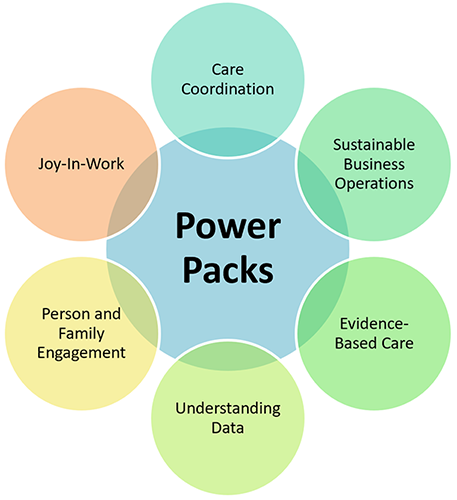TCPI Power Packs

As the only professional nursing organization involved in the Transforming Clinical Practice Initiative (TCPI) we were part of a collective of 10 professional associations charged to assist over 140,000 clinicians in improving how care is delivered by providing technical assistance support for integrating quality and process improvements, and by building on and spreading existing change methodologies, practice transformation tools, published literature, and technical assistance programs.
In collaboration with other SANs we developed a number of Power Packs to spread the transformational work undertaken by clinicians and practices nationally.
Each Power Pack presents a specific service delivery challenge and the steps taken by the spotlighted practice to address the challenge. Power Packs provide a set of change tactics and resources from the SANs and other professional associations that clinicians can use to address a similar challenge within their own practices.


